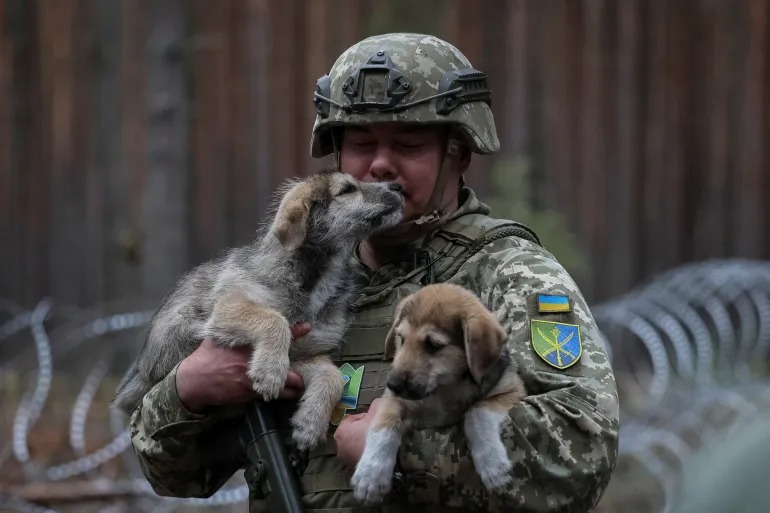As the Russia-Ukraine conflict marches on into its 576th day, the world watches with bated breath as the situation in the war-torn region continues to evolve. In this latest update, we bring you a comprehensive overview of the key developments that unfolded on Friday, September 22, 2023, shedding light on the ongoing fighting, diplomatic maneuvers, and controversial weapon supply decisions.
Escalating Winter Concerns
Amid the relentless conflict, Ukraine has issued a stark warning, raising concerns about the approaching winter. Following a barrage of Russian missiles that targeted civilian infrastructure, Oleksiy Kuleba, the deputy head of Kyiv’s presidential office, cautioned that “difficult months are ahead.” This warning comes as Russia appears poised to intensify attacks on energy and critical facilities. Ukrenergo, Ukraine’s energy operator, reported that 398 settlements were left without power in the wake of these attacks. With temperatures plummeting as low as 20 degrees below zero Celsius (-4 Fahrenheit) during the winter months, the Ukrainian population faces additional hardships compounded by the heavy snowfall that typically blankets the region.
General Valeriy Zaluzhnyi, commander-in-chief of Ukraine’s armed forces, offered a glimmer of hope amidst the turmoil, revealing that Ukrainian air defenses successfully intercepted 36 of the 43 missiles launched by Russian warplanes. However, this defensive victory was not without its costs, as at least two individuals lost their lives, and 21 were wounded. Additionally, numerous fires were reported as a result of the missile strikes.
Diplomatic Endeavors Amid Republican Opposition
Ukrainian President Volodymyr Zelenskyy embarked on his second visit to Washington, D.C., since the onset of Russia’s full-scale invasion. During his visit, Zelenskyy expressed gratitude for the “productive” and “strong” talks held in the U.S. capital, extending his heartfelt thanks to the U.S. government and its people for their unwavering support. The visit coincided with growing skepticism within the Republican party concerning continued U.S. aid to Ukraine. Ohio Republican Senator JD Vance voiced concerns, asserting that “America is being asked to fund an indefinite conflict with unlimited resources.” This sentiment was echoed by 28 Republicans who signed a letter protesting against increased aid.
Meanwhile, Canadian Prime Minister Justin Trudeau announced that Zelenskyy would visit Ottawa from September 21 to 22, where he would address the country’s parliament, further solidifying international support for Ukraine.
U.S. President Joe Biden condemned Russia’s efforts to secure new weapons supplies from Iran and North Korea, characterizing Russia as the primary obstacle to peace. Biden emphasized that Russia’s actions would violate multiple UN Security Council resolutions, which Moscow itself had voted to implement.
Weapons Supply Controversy
Controversy surrounding weapon supply emerged as Mateusz Morawiecki, the prime minister of Poland, seemingly announced a halt in weapons shipments to Ukraine amid a dispute over grain exports. However, Polish President Andrzej Duda clarified that Morawiecki’s statement was misconstrued, emphasizing that the prime minister referred to the plan for modernizing Poland’s military equipment rather than discontinuing support for Ukraine.
Despite this, President Zelenskyy discussed crucial military matters during his meeting with U.S. Defense Secretary Lloyd Austin, as well as General Mark Milley, the chair of the U.S. Joint Chiefs of Staff, at the Pentagon. These discussions centered on artillery systems, long-range capabilities, and strengthening air defense.
In a different context, Werner Hoyer, the head of the European Investment Bank (EIB), cautioned his soon-to-be-announced successor against succumbing to pressure from certain European Union capitals to fund weapons for Ukraine. Hoyer expressed reservations, stating, “If we use their money to buy ammunition, we’re on the wrong track.”
With these developments marking the 576th day of the Russia-Ukraine war, the world continues to grapple with the complexities of this ongoing conflict, which not only impacts the region but has broader implications for global peace and security.
















